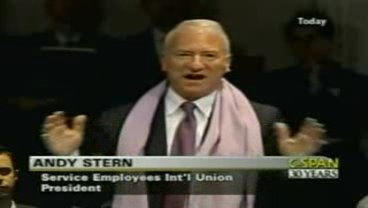Union Bosses Out For Revenge in Wisconsin
The implementation and retention of its new state public-sector Right to Work law are critical for Wisconsin's efforts to furnish relief for taxpaying individuals and businesses and reinvigorate private-sector income growth. Credit: Rick McKee/Augusta (Ga.) Chronicle
Pro-Right to Work Legislators Targeted in July 'Recall' Elections
(Source: June 2011 NRTWC Newsletter)
For at least a decade leading up to the election of Right to Work advocate Scott Walker (R) as governor, Wisconsin, like many other forced-unionism states, was on an unsustainable fiscal path.
From 2000 through 2010, total taxpayer costs for compensation of Wisconsin state and local government employees grew by an inflation-adjusted 9.2%, to a total of $19.83 billion last year.
By 2010, state and local government compensation swallowed up the equivalent of nearly 17% of all private-sector wages, salaries, bonuses and benefits in Wisconsin.
And over the past decade Badger State government employee compensation grew more than two-and-a-half times as fast as private-sector employee compensation, in percentage terms.
Upon Taking Office, Governor Properly Focused His Energy On Forced-Dues Repeal Measure



